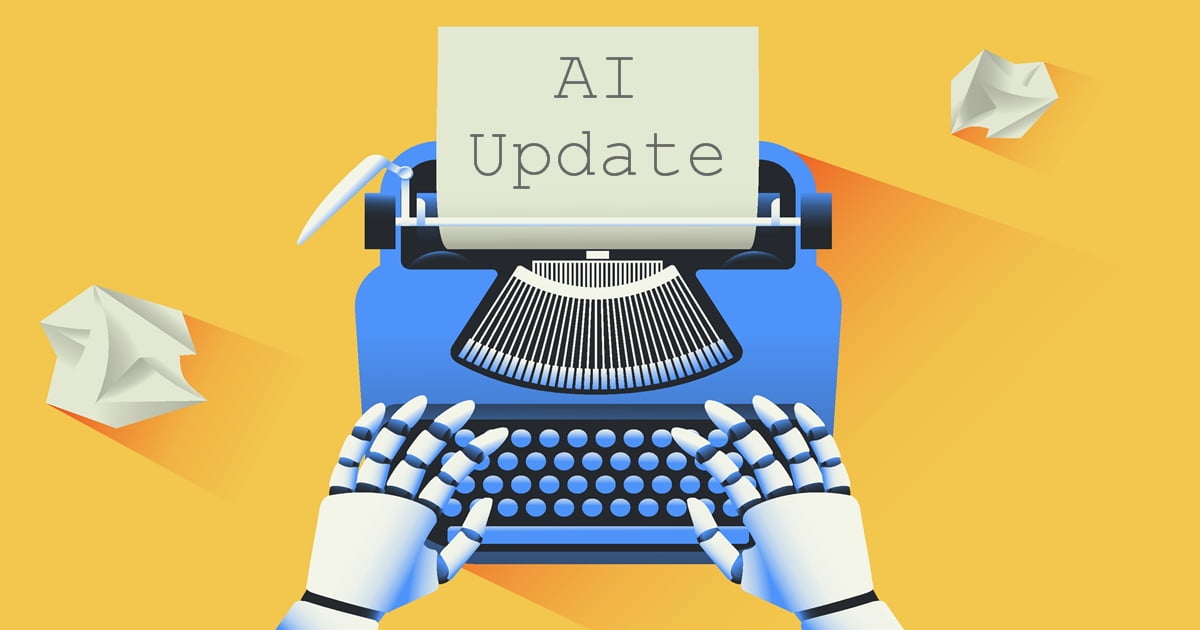Originally Posted on MarketingProfs How-To Articles by MarketingProfs
Catch up on select AI news and developments from the past week or so (in no particular order):
OpenAI’s New ChatGPT Mac App. OpenAI has launched a new desktop app for ChatGPT on Mac, with a Windows version coming later. The app includes features like voice chat and screenshot sharing. A notable feature is a keyboard shortcut for quick access to the chatbot. The app leverages the new multimodal GPT-4o model, enhancing response times and understanding. Early tests show the app’s capability in generating code, providing email replies, and summarizing news. The voice-to-voice version will further enhance interaction.
Importance for marketers: The app’s advanced capabilities can streamline content creation and data analysis for marketers. Its ability to generate insights from screenshots and provide contextual responses can aid in market research and improve productivity.
How Google’s AI Overviews Work. Google’s AI Overviews appear in search results for complex queries, powered by a customized Gemini model and the Knowledge Graph. These summaries sometimes provide webpage links but may require users to click “Show more” to see sources. Concerns exist about AI hallucinations, as disclaimers about inaccuracies are not included. Despite this, Google aims to highlight verifiable information. The feature will roll out globally by the end of 2024.
Importance for marketers: Marketers should understand how AI Overviews impact SEO and organic traffic. Ensuring content accuracy and relevance will be crucial. Optimizing content for better visibility in AI Overviews can drive traffic and engagement.
ChatGPT Google Drive Integration. ChatGPT has begun integrating with Google Drive, currently available only for Enterprise users. This feature allows users to add files from Google Drive when running prompts, enhancing ChatGPT’s functionality. While OpenAI has not officially announced this news, it aligns with the company’s efforts to expand ChatGPT’s capabilities.
Importance for marketers: Google Drive integration can enhance workflow efficiency for marketers by providing seamless access to documents and data. This feature can improve collaboration and data utilization for content creation and analysis.
OpenAI Co-founder Ilya Sutskever Leaving. OpenAI co-founder Ilya Sutskever announced his departure to focus on a personal project. His exit follows a leadership crisis at OpenAI involving CEO Sam Altman. Sutskever was among the board members who initially ousted Altman but later left after Altman’s reinstatement. Research director Jakub Pachocki will replace Sutskever as chief scientist.
Importance for marketers: Sutskever’s departure may impact OpenAI’s strategic direction, especially regarding AI safety and innovation. Marketers should monitor how leadership changes affect OpenAI’s product development and offerings, influencing AI tools available for marketing.
Senate Study Proposes $32B Yearly for AI Programs. A Senate working group recommended $32 billion yearly for federal AI programs, covering infrastructure, grand challenges, and national security. The proposal aims to keep the US competitive in AI development. Key areas of investment include cross-government AI R&D, AI hardware and software funding, and AI-readiness in elections and cybersecurity.
Importance for marketers: Increased federal investment in AI could accelerate technological advancements and provide new tools for marketers. Understanding the evolving AI landscape and potential regulatory changes will be crucial for leveraging AI effectively and ethically in marketing strategies.
Generative AI in Google Search. Google is expanding AI Overviews in Search, offering quick answers and organizing search results with generative AI. The Gemini model enhances reasoning, planning, and multimodal capabilities. AI Overviews will be available to all US users, with a global rollout expected by year-end. Features include language simplification and detailed breakdowns for complex queries, along with planning capabilities for tasks like meal and trip planning.
Importance for marketers: The expansion of AI in Google Search presents opportunities and challenges for marketers. Optimizing content to appear in AI Overviews can drive traffic and engagement. Marketers need to stay updated on AI-driven changes in search behavior to adapt their SEO strategies and maintain visibility.
US Raises AI Misuse Concerns with China. US officials expressed concerns over China’s misuse of AI during bilateral talks, emphasizing the need for communication on AI risk and safety. The US fears AI could be used for malicious purposes like influencing elections, creating bioweapons, and launching cyberattacks. New regulations to safeguard advanced AI models are under consideration.
Importance for marketers: Marketers should be aware of the geopolitical implications of AI advancements and potential regulatory changes. Ensuring responsible AI use and staying informed about regulations will be crucial for maintaining consumer trust and compliance in marketing practices.
Cerebras Systems and Aleph Alpha Supply AI to German Military. Cerebras Systems will supply AI supercomputing systems to Aleph Alpha, a German startup developing AI for the German Armed Forces. This marks Cerebras’ first installation in Europe. The multiyear agreement will help train AI models for language, vision, and multi-data type applications for the military.
Importance for marketers: This collaboration highlights the expanding capabilities and applications of AI in various sectors, including defense. Advances in defense tech have traditionally trickled down to the general market, driving innovation and advancements—which marketers should keep abreast of.
Risks of Advanced AI Models. The Biden administration plans to impose safeguards around advanced AI models to prevent misuse by adversaries. Risks include deepfakes, misinformation, bioweapons, and cyberattacks. AI tools can generate realistic yet fabricated content and provide detailed information for malicious purposes. New legislation aims to restrict export and collaboration on high-risk AI models.
Importance for marketers: Marketers must understand the ethical and security implications of using advanced AI. Ensuring responsible AI usage and staying informed about regulatory changes will be crucial for maintaining consumer trust and compliance in marketing practices.
AI Startup Atlan Raises $105 Million. Atlan, an AI startup, raised $105 million in a funding round led by Singapore’s GIC and Meritech Capital, valuing the company at $750 million. The funding will be used to expand product development and operations. Atlan’s data stack integrates diverse data sources, serving clients like Autodesk, Ralph Lauren, Nasdaq, and News Corp.
Importance for marketers: Atlan’s growth emphasizes the critical role of data integration in AI-driven marketing. Marketers can leverage Atlan’s advanced data capabilities to enhance data analysis, improve campaign targeting, and drive personalized marketing strategies, ultimately increasing efficiency and ROI.
UAE Releases New AI Model Falcon 2. The UAE’s Technology Innovation Institute (TII) has launched Falcon 2, an open-source AI model designed to rival major tech companies. Falcon 2 includes text-based and vision-to-language models, showcasing the UAE’s commitment to AI development. This move follows significant investments in AI and partnerships with global tech companies, positioning the UAE as a competitive player in the AI landscape.
Importance for marketers: The availability of open-source AI models like Falcon 2 offers marketers new tools for content creation and data analysis. Leveraging advanced AI capabilities can enhance marketing strategies, provide competitive advantages, and foster innovation.
Apple to Unveil New Siri Powered by Generative AI. Apple is set to unveil a revamped Siri at WWDC, powered by generative AI, making it more conversational and context-aware. This new version will improve task handling and summarize text messages and notifications. Apple aims to process most requests on-device for privacy reasons. The new Siri will be a key feature of iOS 18, with updates across Apple’s ecosystem.
Importance for marketers: The generative AI-powered Siri offers new opportunities for voice search optimization and user engagement. Marketers should consider optimizing their content for voice queries and exploring how AI-powered assistants can enhance customer interaction and satisfaction.
Sam Altman Teases OpenAI’s New Announcements. OpenAI CEO Sam Altman hinted at upcoming “magical” updates to ChatGPT and GPT-4, excluding GPT-5 or a search engine. Potential features include a multimodal AI model with enhanced image and audio interpretation and phone call capabilities. These updates reflect OpenAI’s commitment to advancing AI technology and improving user experience.
Importance for marketers: Staying updated on OpenAI’s developments is crucial for leveraging the latest AI tools. Understanding new features can enhance content creation, customer service, and overall marketing strategies, helping brands stay competitive and innovative.
AI-Related Products and Features Announced at Google I/O 2024:
- Generative AI for Google TV: Google has integrated its Gemini AI into Google TV, which now generates descriptions for movies and TV shows automatically. The AI can fill in missing descriptions, translate them into the viewer’s native language, and personalize them based on the viewer’s genre and actor preferences.
- Firebase Genkit: Google introduced Firebase Genkit, a new addition to the Firebase platform designed to help developers build AI-powered applications in JavaScript/TypeScript, with Go support coming soon. Genkit enables content generation, summarization, text translation, and image generation.
- LearnLM: Google unveiled LearnLM, a family of generative AI models fine-tuned for educational purposes. LearnLM, a collaboration between DeepMind and Google Research, aims to tutor students conversationally on various subjects. It is being tested in Google Classroom to help educators with lesson planning and discovering new content and activities.
- AI-Generated Quizzes on YouTube: YouTube now features AI-generated quizzes, allowing users to ask clarifying questions, get helpful explanations, or take quizzes on the subject matter of educational videos. This feature utilizes the Gemini model’s long-context capabilities and is rolling out to select Android users in the U.S.
- Gemma 2 Updates: Google announced a new 27-billion-parameter model for its Gemma 2 series, optimized to run on next-generation GPU and TPU hosts. This larger model aims to meet the demands of developers for more powerful AI capabilities.
- Ask Photos in Google Photos: Google Photos is launching Ask Photos, an AI-powered feature that allows users to search their photo collections using natural language queries. This feature leverages the Gemini AI model’s understanding of photo content and metadata, making it easier for users to find specific images.
- Gemini in Gmail: Gmail users will be able to use Gemini AI technology to search, summarize, and draft emails. Gemini can also handle complex tasks, such as processing e-commerce returns by searching the inbox for receipts and filling out online forms.
- Gemini 1.5 Pro: The latest version of Gemini 1.5 Pro can analyze longer documents, codebases, videos, and audio recordings. It can take in up to 2 million tokens, supporting the largest input of any commercially available model.
- Gemini Live: Gemini Live is a new experience that allows users to have in-depth voice chats with Gemini on their smartphones. Users can ask clarifying questions, and the AI adapts to their speech patterns in real-time, providing emotionally expressive and realistic dialogue.
- Gemini Nano: Gemini Nano, the smallest version of Google’s AI models, will be built into the Chrome desktop client, starting with Chrome 126. It allows developers to use the on-device model to power their AI features and will enhance tools like the “help me write” feature in Gmail.
- Google Maps AI Highlights: The Gemini model’s capabilities are being integrated into Google Maps, starting with the Places API. Developers can use generative AI summaries of places and areas, leveraging insights from Google Maps’ community of contributors.
- AI in Search: Google is enhancing its search capabilities with AI-powered overviews and using Gemini to organize search results for some queries. These overviews provide aggregate information and will be generally available after a stint in Google’s AI Labs program.
- Generative AI Upgrades: Google announced Imagen 3, the latest in its Imagen generative AI model family. Imagen 3 offers improved text prompt understanding, creativity, detail in image generation, and fewer artifacts and errors compared to its predecessor.
- Veo: Google introduced Veo, an AI model that can create 1080p video clips up to a minute long based on text prompts. Veo captures different visual and cinematic styles and builds on Google’s preliminary commercial work in video generation.
- Circle to Search: The AI-powered Circle to Search feature on Android allows users to get instant answers using gestures like circling. It can solve complex problems and help with homework, making it easier to engage with Google Search from anywhere on the phone.
Importance for Marketers: These AI advancements offer numerous opportunities for marketers. The integration of AI in Google TV, YouTube, and Photos enhances content personalization and discoverability, improving user engagement. Firebase Genkit and Gemma 2 updates provide powerful tools for developing AI-driven applications, enabling more efficient content creation and data analysis. AI-powered features in Gmail, Maps, and Search optimize workflows and enhance user experiences, making it crucial for marketers to stay updated on these technologies to leverage their full potential in marketing strategies.
You
can find last
week’s AI Update here.
Editor’s
note: GPT-4o was used to help compile this week’s AI
Update.






